RSF announces nominees for its 2020 Press Freedom Awards
Reporters Without Borders (RSF) is unveiling the list of 12 journalists and media outlets from 12 countries who have been nominated for the 2020 RSF Press Freedom Awards, to be awarded in Taipei on 8 December.
Читать по русском / Read in russian
Seven journalists – four of them women – and five media outlets (or journalists’ organizations) are competing in three categories; prize for Courage, Impact and Independence. They include journalists or investigative media from Russia, Brazil, Philippines, India and France.
“The RSF Press Freedom Awards are designed to honour journalists who – by their courage or independence or the impact of their investigations and reporting – particularly embody the ideals of journalism that we defend,” RSF secretary-general Christophe Deloire said. “This prize does not just pay tribute to them. It is also deliberately intended as a demonstration of support for journalists who are too often imprisoned, prosecuted or threatened for embodying these values.”
After London in 2018 and Berlin in 2019, it is the Taiwanese capital, Taipei, that is hosting this year’s RSF Press Freedom Awards. The award ceremony will be held in the National Library in Taipei on 8 December and will be livestreamed on Facebook in Chinese and on YouTube in English.
“Taiwan, which proved that you can control the Covid-19 epidemic without sacrificing fundamental freedoms, is the ideal place to host our press freedom awards ceremony,” said Cédric Alviani, the director of RSF’s East Asia bureau. Year after year, Taiwan heads the Asian countries in RSF’s World Press Freedom Index and represents the best alternative model to the Chinese authoritarian system.”
Chaired by RSF president Pierre Haski, the jury of the 28th RSF Press Freedom Awards consists of prominent journalists and free speech defenders from all over the world.
The jury members are Rana Ayyub, an Indian journalist and Washington Post opinion columnist; Raphaëlle Bacqué, a leading French reporter for Le Monde; Mazen Darwish, a Syrian lawyer and president of the Syrian Centre for Media and Freedom of Expression; Zaina Erhaim, a Syrian journalist and communication manager at the Institute for War and Peace Reporting; Erick Kabendera, a Tanzanian investigative reporter; Hamid Mir, a Pakistani reporter, columnist and author; Frederik Obermaier, a German investigative journalist with Munich’s Süddeutsche Zeitung newspaper; and Mikhail Zygar, a Russian journalist and founding editor-in-chief of Dozhd, Russia’s only independent TV news channel.
Nominees for the prize for courage:
Elena Milachina (Russia)

An investigative reporter for the Moscow tri-weekly Novaya Gazeta, Elena Milashina specializes in covering Chechnya and holds the position left vacant when her colleague, Anna Politkovskaya, was murdered in 2006. She has often been the target of physical attacks (the latest was in her hotel in Grozny in February), death threats and censorship (one of her articles about the Chechen government’s mismanagement of the Covid-19 crisis was removed from the newspaper’s website in April). But she continues to write uncompromising articles about the most sensitive subjects in Chechnya, an autonomous republic ruled with an iron hand by Ramzan Kadyrov.
Margarita "Ging-Ging" Valle (Philippines)

Arrested and held secretly for several days in June 2019 in an attempt to intimidate her, Margarita "Ging-Ging" Valle has unflinchingly continued to expose human rights abuses in the southwestern Philippines region, which is under martial law. A columnist and writer for the newspaper and website Davao Today, she specializes in issues often ignored by the main national news organizations, such as the rights of indigenous peoples, the rights of women in rural societies and the environment. She was subjected at an early stage to the “Duterte system” during his long period as mayor of Davao before he ran for president.
Fahad Shah (Kashmir, India)
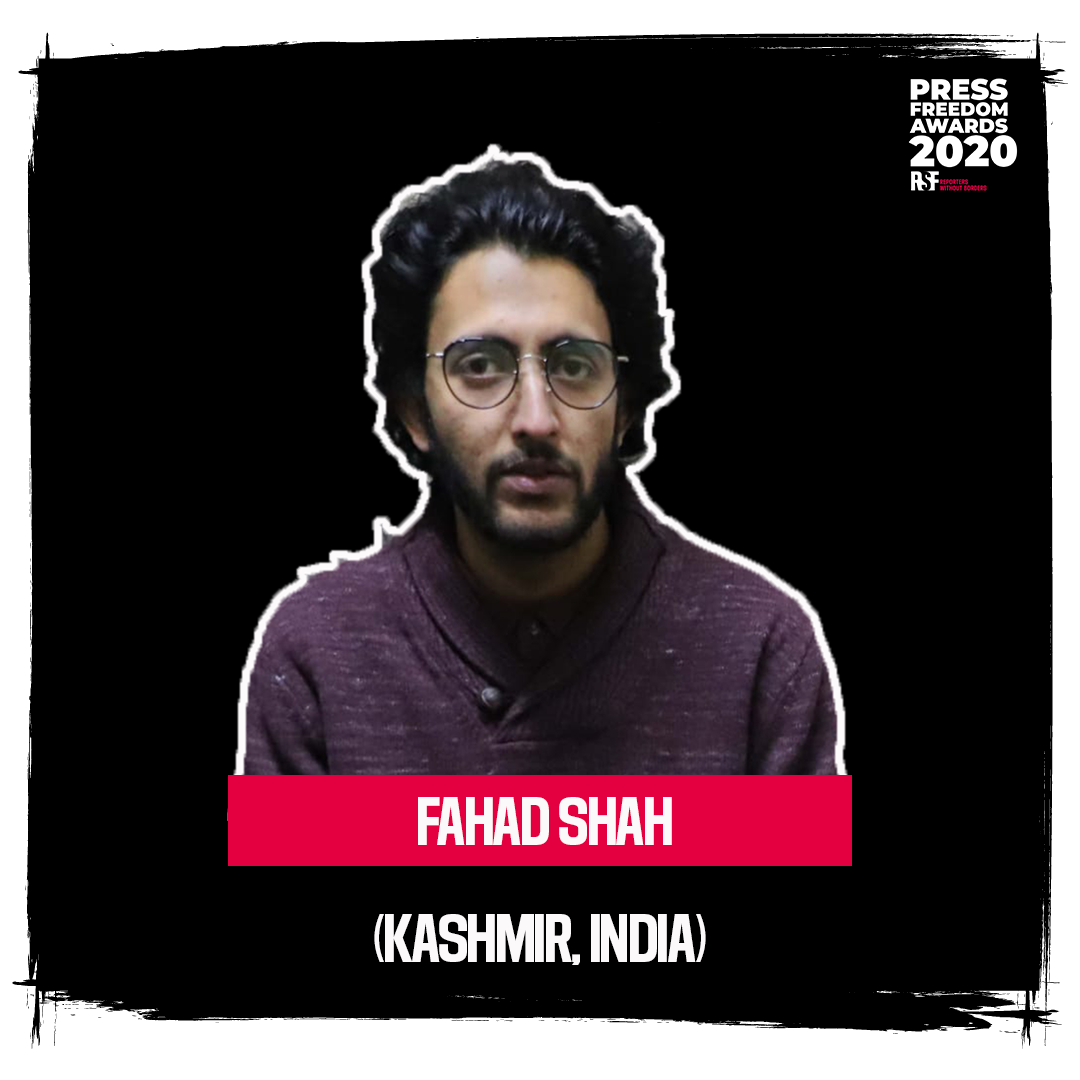
Editor of the main investigative website The Kashmir Walla, Fahad Shah is regularly summoned for questioning by the police about his reports in order to intimidate and threaten him, but also to try to force him to reveal his sources, which he refuses to do under any circumstances. He has also been the target of physical assaults. The outlet that he runs has played an important part in defending press freedom, using innovative methods to keep 8 million Kashmiris informed despite the fact that they have been cut off from the outside world since the territory’s autonomy was rescinded in August 2019.
Mohammad Mosaed (Iran)

Award-winning freelance financial journalist Mohammad Mosaed was summoned and questioned by Revolutionary Guard agents in February this year after posting articles on social media that were critical of the government's lack of preparedness for the coronavirus outbreak. He had previously been awarded the Amin Al-Zarb award for best economic journalist in Iran and the Deutsche Welle Freedom of Speech Award for his investigations into corruption in Iran.
He was released but his laptop and cellphone were confiscated, and his Twitter and Telegram accounts closed. He was arrested several times last year for posting a single Tweet and was included on the list of the most persecuted journalists by the International Alliance for Press Freedom.
Nominees for the prize for impact:
La Voix de Djibouti (LVD) (Djibouti)
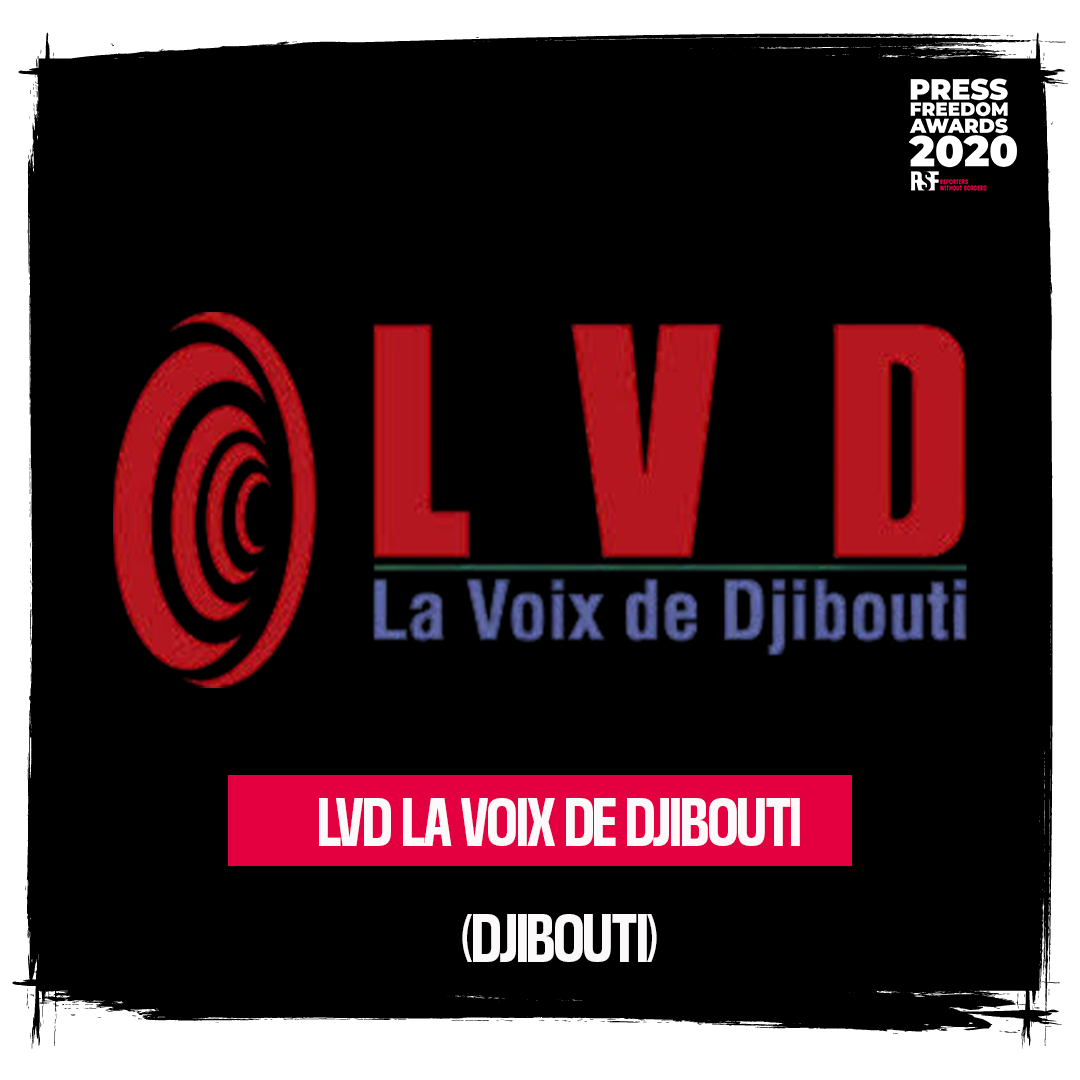
Banned in Djibouti and now broadcasting from France, LVD operates with a network of journalists and voluntary contributors who work clandestinely to provide news and information. It is an oasis of free information produced by Djiboutians in a country where only state organs that churn out government propaganda are permitted. Despite its small budget, the outlet launched a web television service a few months ago and its influence and reputation continue to spread. An example was its coverage of the case of the detained air force officer Fouad Youssouf Ali, which rattled the government. The former pilot circulated videos critical of President Ismaïl Omar Guelleh’s government after he deserted. LVD is regularly jammed by the authorities but is available via RSF’s #Collateral Freedom programme.
Disclose (France)

This new young investigative and collaborative outlet, financed entirely by donations from philanthropists and readers, investigates issues of public interest, such as the environment, social issues and the agri-food business. Disclose aims to spark public debate and provide citizens with the tools to exercise their right to information and empower them to take action afterwards. In 2020, its disclosures about child sex offenders in sport led to the resignation of the head of a sports federation. A year earlier, a shock report on the use of French weaponry in Yemen led the government to issue a public explanation and resulted in the two co-founders of Disclose being summoned for questioning by the French domestic intelligence agency DGSI as part of an investigation into a “compromise of national defence secrecy”. The investigation was shelved.
Merman Radio (Afghanistan)

This station was the first to broadcast in Kandahar with the mission of promoting the cause of women (“merman” in Pashtu) in Afghanistan. A team of 15 women, including journalists, producers and technicians, broadcasts daily programs with the aim of changing public perceptions of gender, promoting the election of women to public bodies and, with other organizations, highlighting the issue of gender-based violence. It also provides journalism training aimed at women. The station carries out its activities in spite of threats from the Taliban, warnings from the security services and attacks on its journalists.
Cecilia Olliveira (Brazil)

Investigative journalist Cecilia Olliveira writes about public security issues, the drug trade and the public sector for the Brazilian edition of The Intercept. She has played a decisive role in disclosing the financial involvement of international organizations in the gang warfare that plagues Rio de Janeiro, by discovering the names of countries printed on cartridge cases found in the neighborhoods concerned. These included the United States, China, Russia, Belgium and NATO. She is also behind the app Fogo Cruzado (“Crossfire”) which tracks gun violence in Rio and Recife and holds an open-source database which helps the development of public safety policy. She is among the influential voices that promote diverse and independent journalism in the country.
Nominees for the independence prize:
Lina Attalah (Egypt)
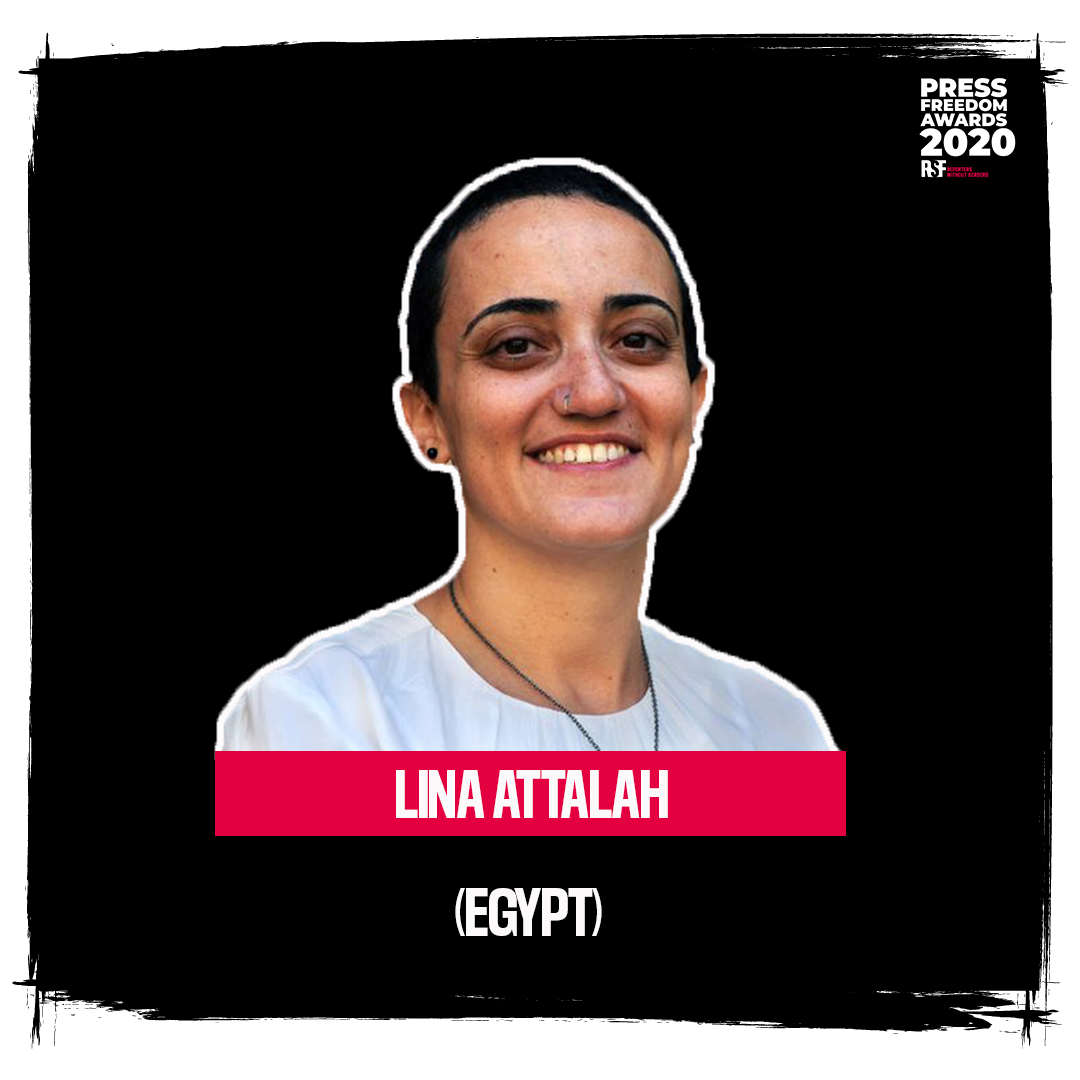
Lina Attalah is the editor and co-founder of the online newspaper Mada Masr, one of the few remaining independent news outlets in Egypt. She made her name as a journalist who dared to tackle sensitive subjects and fought against self-censorship. In a country where most of the major media groups are owned by associates of the president, she knows that independence has a cost. She has been questioned a number of times about investigations or interviews she has carried out and her premises were raided in 2019 after she published an investigation into the son of President Abdel Fattah Al-Sissi. Access to the Mada Masr site within Egypt has been blocked by the authorities for the past three years. Lina Attalah is among the world’s 100 most influential figures listed by Time magazine in 2020.
Péter Uj (Hungary)
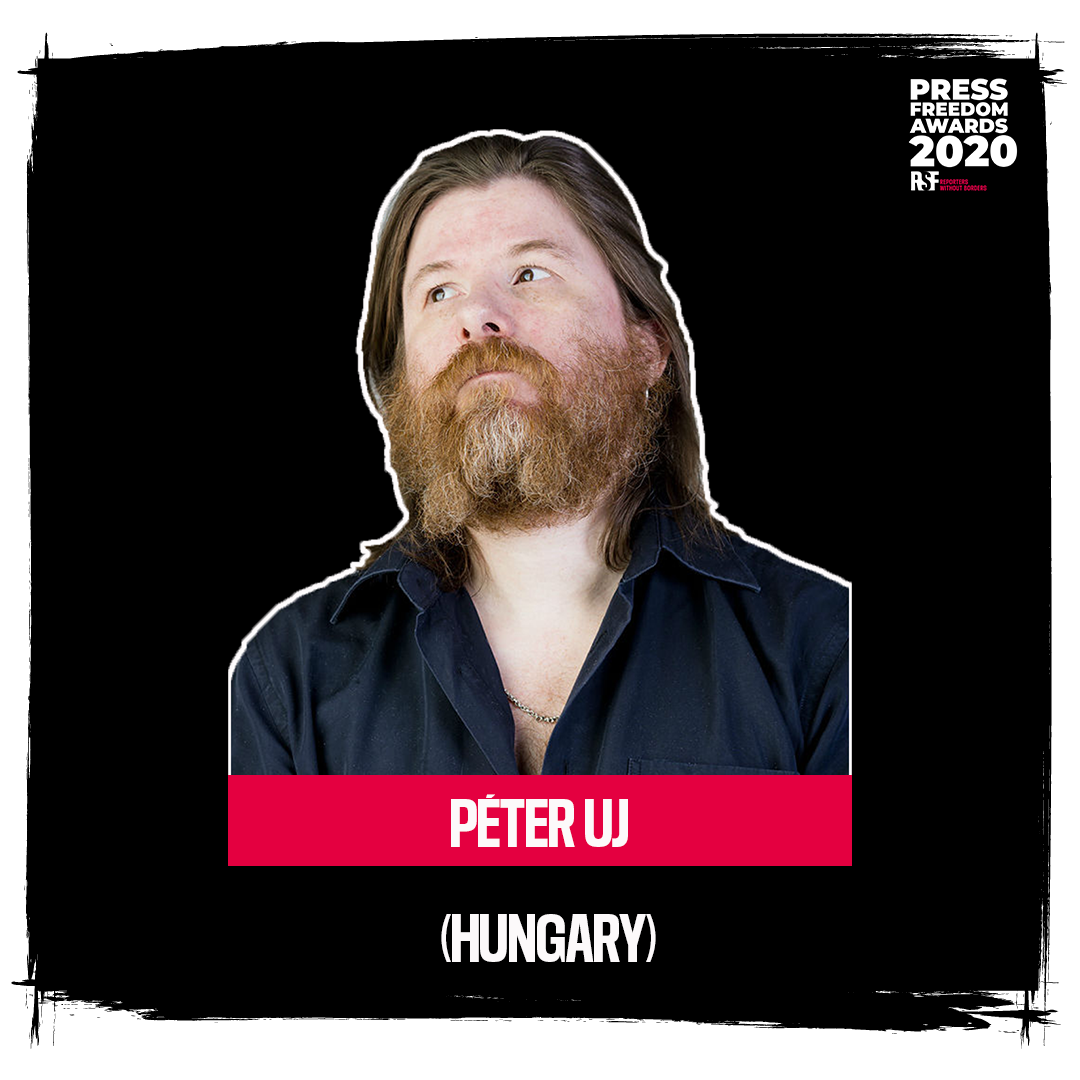
A leading figure of Hungarian independent journalism, and its staunchest defender, Péter Uj is the editor of the news website 444.hu. In 1999 he helped found the main independent news portal Index.hu, which he edited for 11 years, until the government started to meddle in its content and the composition of its staff. A single-minded and charismatic trailblazer, he launched the site 444.hu, one of the few beacons of a free press in Hungary despite Prime Minister Viktor Urban’s attempts to muzzle the country’s last independent media outlets and after the virtual disappearance of Index.hu in July this year.
The Cambodian Journalists Alliance (CamboJA) (Cambodia)
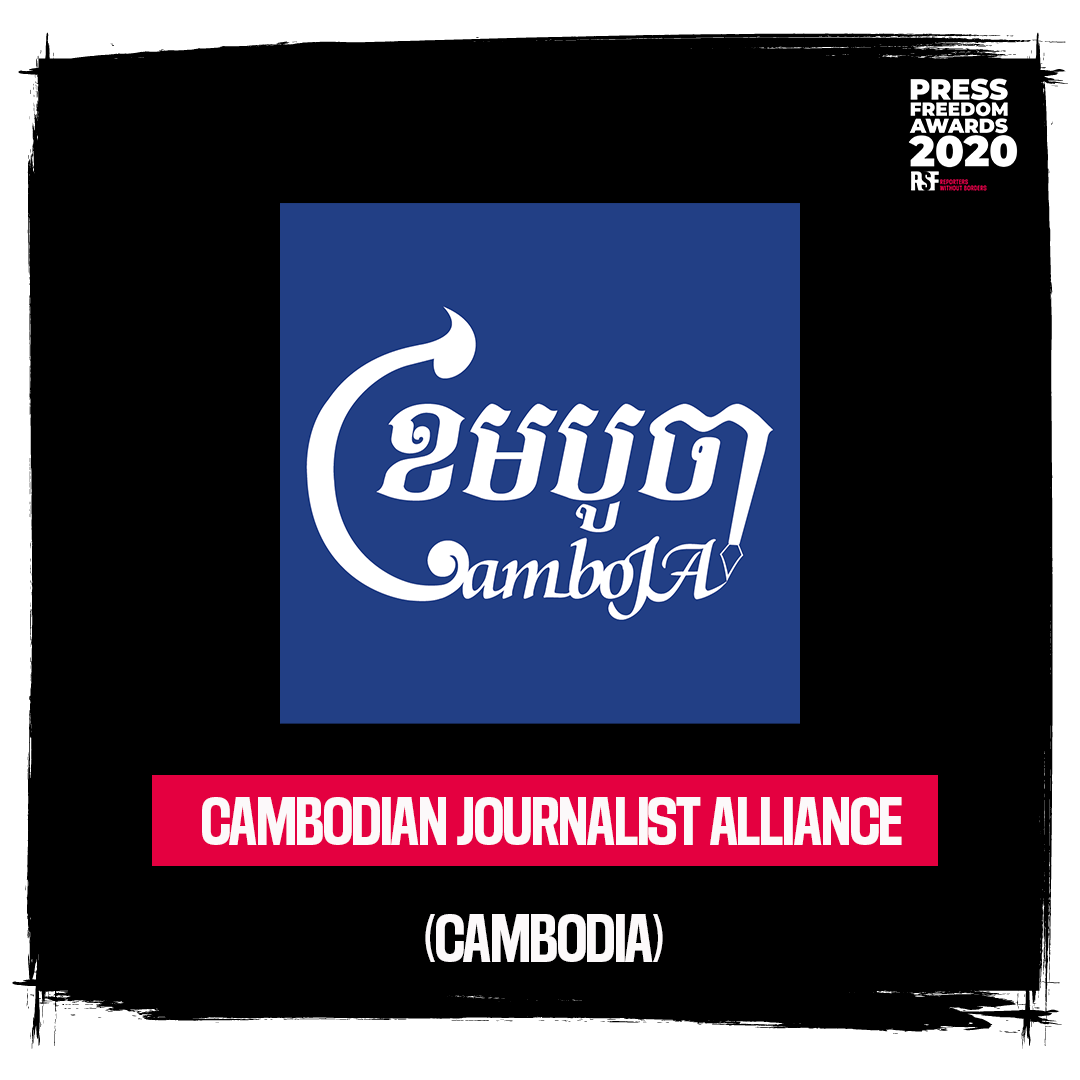
The launch of the Cambodian Journalists Alliance (CamboJA) in December 2019 arose from one overwhelming event: the clique led by Prime Minister Hun Sen, who has been in power for more than 30 years, violently destroyed the free press in its entirety and brought the country’s news industry to heel. In this context, the emergence of CamboJA was provided a breath of oxygen that allowed the country’s reporters to breathe. The alliance developed an independent news platform which gave Cambodian journalists a place to express themselves and also somewhere to highlight abuses of press freedom as well as to provide assistance and training in ethics and investigative journalism. It is the last bastion of an independent media in the country and has more than 100 members.
La Prensa (Nicaragua)
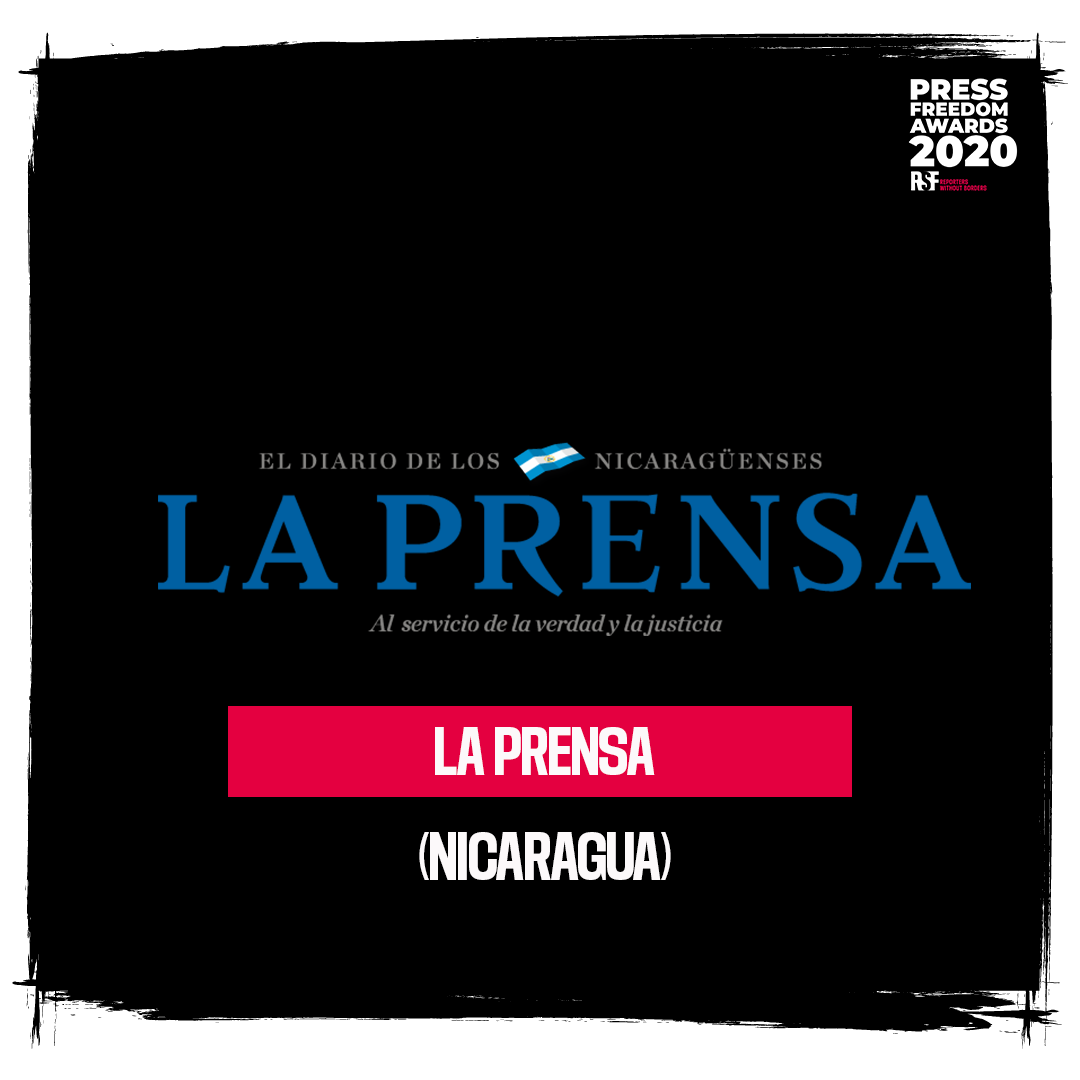
Founded in 1926 with the slogan “In the service of truth and justice”, Nicaragua’s largest daily newspaper La Prensa does not spare its criticism of the Ortega government and is often in its firing line. For the past three years, every possible means has been used to strangle La Prensa financially. For 18 months, it suffered from a shortage of newsprint and other raw materials, forcing it to drastically reduce the number of its pages. More recently, La Prensa has been the target of improper legal proceedings designed to force it to pay exorbitant fines. In an editorial published on 27 January headlined “The dictatorship is strangling La Prensa”, the newspaper’s board explained that, as a result of this bureaucratic censorship its days were numbered.
